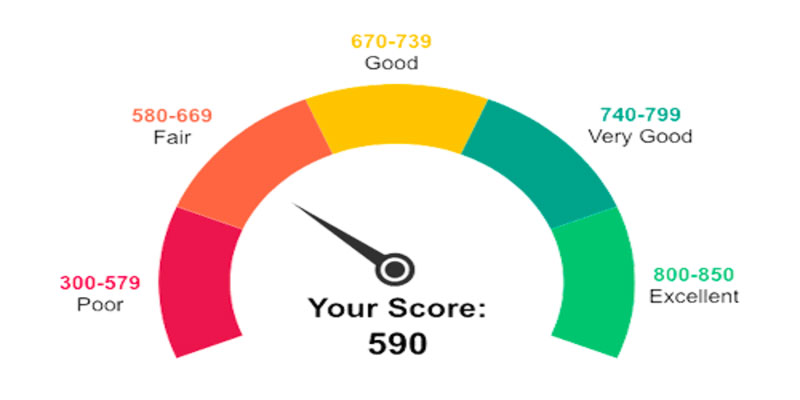Jan 17, 2022 By Triston Martin

Like taxes, death is unavoidable, yet most people aren't keen on thinking about it. However, it is critical if you have family members who are dependent on your income that you have enough financial resources in place, including life insurance.
Funeral and burial expenditures, debt repayment, and day-to-day living expenses may all be made easier for the people you leave behind with the aid of life insurance. It can be difficult to determine whether or not you have enough coverage when it comes to life insurance. This guide will help you determine how much protection you need.

What Is a Life Insurance Policy?
As long as the premiums are paid and current, an insurance Policy commits to pay a specific sum upon the death of an insured party. For this reason, it is known as a death benefit. – Insurance policies provide insured persons the peace of mind and financial security that their loved ones will have in the event of their death. There are two types of life insurance: whole life and term life. As long as you keep up with your premiums, you'll be protected for the rest of your life. You may develop cash value by investing the premiums you pay into the stock market in some whole life plans.
Is Life Insurance Necessary?

Although purchasing a life insurance policy might be a wise financial move, it isn't for everyone. You may not need life insurance if you're single, have no dependents, and have saved enough money to pay off your obligations and cover your last expenditures, such as your burial, estate, and legal fees. If you have dependents or sufficient assets to support them in the event of your death, the same principle applies.
For those who are major breadwinners or have a large amount of debt that exceeds their assets, insurance can assist ensure that their loved ones are financially secure in the event of your death. If you operate a business or have cosigned obligations, such as private school loans, that someone else may be held liable for in the event of your death, getting life insurance may make sense.
Life Insurance and Age
It's a common misperception among consumers that you've missed the boat if you don't get life insurance while you're still young. According to the insurance industry, life insurance plans grow more difficult to get as you become older. Insurance firms bet on people's life spans to make a profit. Insurance is less expensive while you are younger, it is true. However, this does not imply that obtaining coverage is any simpler.
Is It Smart to Invest in Life Insurance?
If your life insurance policy accrues cash value, you may be able to view it as an investment. It's common for cash value insurance to be advertised as a tool to save or invest in Life Insurance for the future. These plans allow you to construct a savings account that earns interest over time. As with banks, the insurance firm invests the money it receives to make money for itself. For the usage of your money, they give you a percentage fee.
How Much Life Insurance Do You Need?
Finding out how much money your loved ones would require in the event of your untimely death is an important consideration when picking a policy. The face value of your policy—the amount paid out in the event of your death—is determined by a variety of criteria. This means that you may need a different level of coverage than someone else. Many financial advisors suggest obtaining 10 to 15 times your yearly salary in insurance, but your individual needs may necessitate a different figure.
Debt
When you die, your life insurance policy may be used to pay off all of your debts—from college loans and vehicle loans to mortgages and credit cards. If you owe any of the following, your policy should cover the full amount. For example, if your mortgage is $200,000 and your auto loan is $4,000, you'll need at least $204,000 in coverage to pay off your bills. However, don't forget that you have an interest in the subject. If you've accrued any additional fees or interest, you'll want to increase your withdrawal amount.
Cost of living Adjustment
For life insurance, income replacement is a major consideration. To replace your income and protect against inflation, you'll need an insurance payout that's substantial enough to cover your $40,000-a-year salary and a little more.
Suppose that your policy's lump sum benefit is invested at 8% to be safe. To replace your lost income, you'll require coverage of $500,000 or more. You can protect yourself from inflation by adding your annual salary back into the policy ($500,000 + $40,000 = $540,000 in this example).
Providing Coverage for Others
You may ask if you should ensure the other people in your life, like your spouse or children. The only individuals you should insure are those whose death would cost you money. Losing a kid is difficult to deal with, but it's not a financial setback because children are expensive to nurture. However, an income-producing spouse's death can cause both emotional and financial hardship. Using their salary, perform the income replacement computation. Additionally, if you have a financial connection with your company partners, you should do the same.
Example of Life Insurance
According to most insurance firms, six to ten times the yearly wage is suitable to ensure one's life. Alternatively, you may multiply your yearly pay by the number of years you have left before retiring to determine the appropriate amount of life insurance to purchase for yourself. You will need $500,000 in life insurance for a 40-year-old who currently earns $20,000 each year.
-

How Do Bond Ratings Work?
Aug 28, 2023
-

Everything you need to know about Cheapest Car Insurance
Jan 16, 2022
-

Top 5 Places for Affordable Retirement Living in Tennessee:
Jul 01, 2023
-

10 Must-Know Facts Before Moving to South Carolina
Jun 30, 2023
-

Pros in the Field of Investment Fund Management
Dec 29, 2021
-

Can You Use Rent to Pay Your Mortgage
Jul 01, 2023
-

A Complete Review On Avant Personal Loans
Aug 01, 2022
-

Activating and Utilizing Your Chase DoorDash Benefit: A Step-by-step Guide.
Aug 28, 2023



